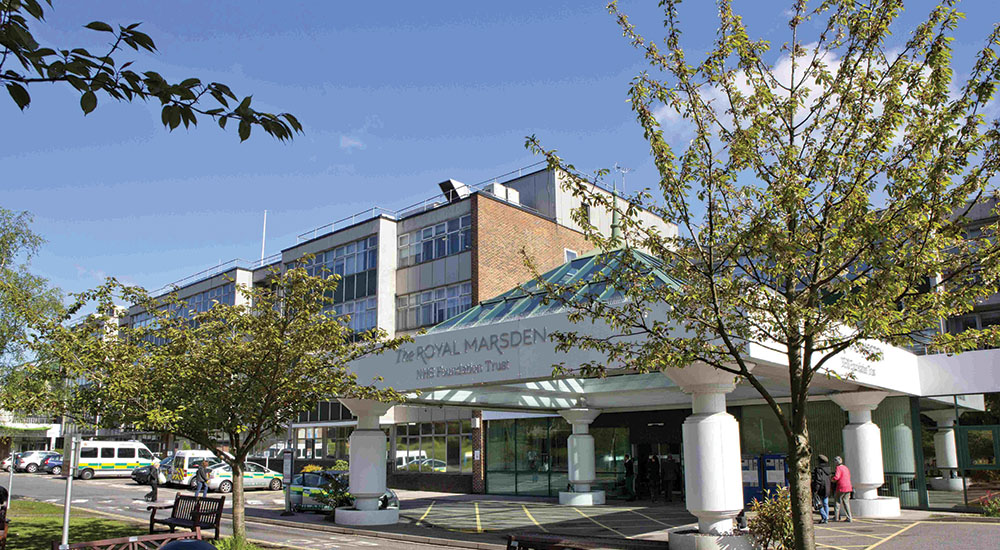The Royal Marsden NHS Foundation Trust has announced a pioneering partnership with NTT DATA and CARPL.ai. Together, they have designed and built an advanced AI-powered radiology analysis service for the development and evaluation of AI in medical imaging, designed to transform cancer research and, ultimately, improve patient outcomes.
AI’s potential to enhance the speed and accuracy of identifying imaging biomarkers has long been recognized. Funded by a three-year grant from the UK’s National Institute for Health and Care Research (NIHR), the service will be used for research at The Royal Marsden and the Institute of Cancer Research (ICR), including projects in collaboration with other research teams. This research initiative will focus on developing and evaluating AI algorithms to improve the accuracy of cancer evaluation, including sarcoma, lung, breast, brain and prostate cancers. This will lead to faster response times, more accurate diagnoses and better-targeted treatments.
The service runs on a MLOps clinical imaging platform, built and operated by NTT DATA. To enable this, NTT DATA developed a bespoke AI computing solution leveraging high-performance Dell servers and utilizing the latest GPU processing capacity orchestrated by the CARPL.ai platform, which helps test and manage AI algorithms and includes a large collection of radiology AI models.
NTT DATA is also providing specialist imaging AI consulting services, helping researchers at The Royal Marsden test and evaluate emerging AI tools in real clinical settings, while extracting maximum insight and value from both in-house and commercial algorithms.
“AI has immense potential to support clinicians in diagnosing and treating cancer earlier and more precisely,” said Professor Dow-Mu Koh, Professor in Functional Cancer Imaging and Consultant Radiologist in Functional Imaging at The Royal Marsden. “By working with NTT DATA and CARPL.ai, we’ve created a scalable research environment that allows us to explore the full potential of AI safely and in a way that could one day transform cancer diagnosis and treatment across the NHS.”
Minister of State for Health, Karin Smyth, said, “Our 10 Year Health Plan will modernize the NHS, replacing outdated systems with cutting-edge digital solutions. While this trial is in its early stages, it represents exactly the kind of collaboration between the NHS, industry and academia that will help build a health service fit for the future. Early detection saves lives, and innovations like AI will transform how cancer is diagnosed and treated – helping patients receive faster and more effective care.”
Professor Mike Lewis, NIHR Scientific Director for Innovation, said, “Cancer is one of the biggest killers in the UK. That must change. This three-year grant will help researchers push the boundaries of AI-driven technology for cancer detection and diagnosis.
“This AI-powered service represents the cutting edge of cancer research and it is going to transform treatment, better support NHS staff and ultimately change patients’ lives. It is another great example of how NIHR-funded and supported research will ensure the best care is there when patients need it.”
Tom Winstanley, Chief Technology Officer at NTT DATA UK & Ireland, commented: “This service is a great example of responsible innovation in practice, showing the ethical, secure use of AI in healthcare. We are very proud to support The Royal Marsden in pushing the boundaries of cancer research.”
Once the service is live, research teams at The Royal Marsden will be able to evaluate a range of AI models across several cancer types. These studies will generate critical insights into how AI can support clinical decision-making and shape future approaches to diagnosis and treatment. Through CARPL.ai’s centralized interface and built-in monitoring tools, the research teams will also be able to track model performance over time, enabling faster feedback loops between development and deployment – a crucial step towards clinical translation. NTT DATA will continue to work closely with The Royal Marsden to support this next phase of research which will ultimately improve cancer care and patient outcomes.

















